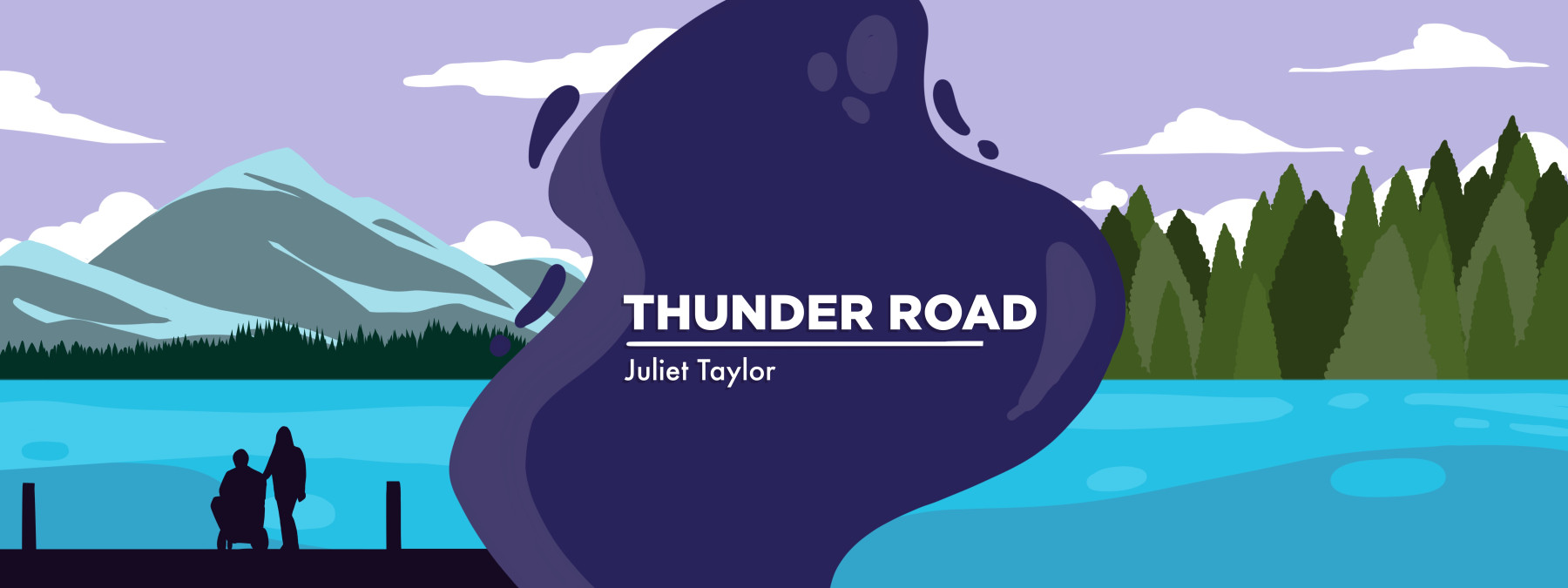Processing my guilt has become a part of my life’s work
As I grieve, advocate, and take pains to heal, I also live with unwelcome doubts

Often I do some of my deepest thinking when I’m alone in the car. I regularly drive 35 minutes to ride my horse, and I like to spend that time in silence. That’s when I think about people to contact or items on my to-do list for the week ahead. But most often, the drive is when I think through challenges and how I might solve them.
Yesterday, inexplicably, and more than five years after his death, I found myself deep in thought about the personal decision my late husband, Jeff, made to not pursue a tracheostomy, or trach, in his later stages of ALS. He’d been adamant from the start that he didn’t want one, and he hadn’t wavered throughout his time living with the disease.
By mutual yet unspoken understanding, Jeff made all the decisions about his healthcare during his time with ALS. It was his life and his body, and the choices were his. As his caregiver, however, I was a full partner and voice in his treatment; I attended every one of his frequent medical appointments, asking questions, taking notes, and sharing my concerns. It fell to me to execute the plans we’d made, including administering his Radicava (edaravone) infusions and feeding his meals by a percutaneous endoscopic gastrostomy (PEG) tube, a far cry from the smoked barbecue meals he’d once loved to prepare.
That partnership also included my respecting his decisions regarding treatments, including a trach.
An array of guilt
As I was thinking about that decision on my drive yesterday (why?), my brain went to unanswerable — and now rhetorical — questions. Could we have made a tracheostomy work? Should I have encouraged him? Would he still be here if I had? Did he make that decision out of concern for me having to care for him?
For all of the feelings that come alongside ALS — anguish and fear of the disease, heightened love and gratitude for our people — I wasn’t prepared for one unexpected emotion, and that is guilt. Guilt was an unwelcome guest that I never saw coming. It arrived almost instantly with Jeff’s diagnosis, when I wished I’d taken his symptoms more seriously. And unfortunately, that guilt has never really left me.
Generally it’s guilt about whether I was a good enough caregiver (yes, I was) or whether I did everything I could for him (of course I did). I replay the times he may have waited for me to empty his catheter bag, or adjust his neck as it grew uncomfortable, even though I’m failing to recognize that I was completing other care tasks at the time.
Other times it’s guilt for sharing with others about ALS when we lived with it for “only” 19 months, when so many have it for years. At the same time, I know that any day with ALS is one day too many, and every lived experience with ALS is valid. We have limited control over ALS to begin with, and that includes how long we live with it. ALS is cruel enough to us without us being cruel to ourselves.
Finally, it’s survivor’s guilt. Why was Jeff afflicted with ALS after a more than 30-year career of helping others, or after surviving being hit by a car while bicycling? Why was he dying from ALS with his first grandchild on the way? Why does ALS seem to choose the best, the brightest, the most active people?
ALS and grief have brought me many emotions, many of them seemingly in conflict with each other. These include sadness, fear, and anger, but also love, gratitude, and perspective. In grief, I feel everything — both the good and the bad — more deeply. This includes guilt. Processing these emotions, and healing, is the new work of my life.
Self-compassion, I’m learning, is an important antidote to guilt. I’m not a physician; I couldn’t have diagnosed a foot drop or slurred speech as ALS, and I couldn’t have known whether a tracheostomy would be a good idea. I couldn’t have given Jeff more time — no one on earth could have done that.
Instead, with no medical experience, I became a dedicated caregiver, one who provided my beloved husband with a safe, peaceful, and dignified life during a terminal illness. Together we traveled, made memories, listened to live music, went whitewater rafting, met the Budweiser Clydesdales. We lived an incredible life under devastating circumstances.
Guilt has no place during life with ALS, and it has no place in grief and healing. I’m working every day to banish it, replacing it with love, kindness, and understanding for all of us in the ALS community, no matter where we are on this impossible path.
Note: ALS News Today is strictly a news and information website about the disease. It does not provide medical advice, diagnosis, or treatment. This content is not intended to be a substitute for professional medical advice, diagnosis, or treatment. Always seek the advice of your physician or other qualified health provider with any questions you may have regarding a medical condition. Never disregard professional medical advice or delay in seeking it because of something you have read on this website. The opinions expressed in this column are not those of ALS News Today or its parent company, Bionews, and are intended to spark discussion about issues pertaining to ALS.







Leave a comment
Fill in the required fields to post. Your email address will not be published.